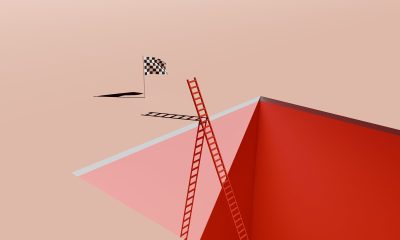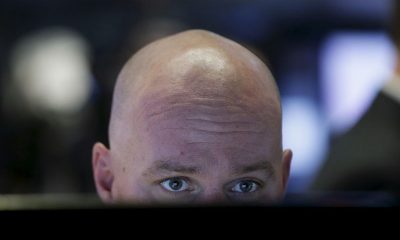Save Money
Not Your Grandparent’s Retirement: How Saving for the Future Has Changed

Up until recently, “retirement” used to mean essentially the same thing for most people: You (or your spouse) would get a job, which would provide you with a pension plan, you would work there for 40-plus years and then retire at age 65 to a sunny location like Florida. Depending on wealth accumulation throughout your career, maybe you could afford to take a lot of vacations or enjoy new hobbies, or maybe you were happy to finally have this time to relax after putting in your time as a loyal employee. Either way, chances are good that you were set up well. Pension plans were much more commonplace than they are today and acted as a more guaranteed source of income, so funding life in retirement was a no-brainer. The entire reason you had been working all of your life was precisely for this moment where you could comfortably stop, relax and enjoy this next phase of life.
Today it’s much different. The landscape of how we save has drastically changed. Pension plans are few and far between. With the advent of 401(k) plans and similar investing vehicles, the onus to save is much more on the individual. This holds even more truth if you don’t even have access to an employer-sponsored retirement plan. Additionally, the pattern of working with the same company for the entire span of your career, dreaming of retirement at the end, is not as common anymore. People have varying goals throughout life, retirement included. Here we look at how saving for retirement has changed and how it might affect your game plan, but also what “retirement” even really means anymore.
Retirement Plans Past & Present
What’s the difference between a pension and a defined-contribution plan, like a 401(k)? Mainly, defined benefit plans, such as a pension, place the responsibility of saving on the employer, versus a 401(k) where the employee bears the responsibility to save for their future selves. A defined benefit plan guarantees a set amount of monthly income in retirement and the plan provider, the employer, assumes all investment risk. Opposingly, in a defined contribution plan, the employee makes all of the decisions regarding investments and contributions, with no minimum income in retirement guaranteed.
In 1875, the first private pension plan was created to help American workers have a more stable future, both for their own financial future and their careers. By 1940, 4.1 million private sector employees have access to a pension plan. By this time Social Security had also been enacted and 65 was the standard age to retire. Both of these programs were only intended to help people cover their lives for a few years after retirement. Cut to present time: 68% of working-age people do not participate in an employer-sponsored plan, the average life expectancy falls around 85 years and the typical employee lasts an average of 4.6 years before moving onto their next job. Defined-contribution plans have outpaced pension plans as the primary retirement savings vehicle used today.
These developments, along with recent events such as the Great Recession, have drastically changed the landscape of retirement, but also peoples’ careers and long-term finances. So, what does this all mean for you?
Changing What “Retirement” Means
All of these changes and trends speak to more significant changes in the way we approach retirement. Whether you’re a millennial or a baby boomer, there has been an undeniable shift in the perception of what life will look like at 65 and beyond and how you’ll get there.
Baby Boomers are the first generation where their impending retirement will be wholeheartedly affected by all of these developments. They are fully aware they could live well beyond what they expected when they first start saving for retirement. They realize Social Security will only cover a fraction of their living costs and many are willing to continue working into their 60s and 70s to be able to make ends meet. In fact, many have to keep working on a full or part-time basis because they did not save enough over their lifetime or their nest egg took a significant hit during the Recession. A part from their daily necessities to consider, health care costs for retirees have been steadily skyrocketing. While for some people, changing their idea of retirement may not have been a choice, it’s an adaption Baby Boomers will have to make.
What does this mean for those further away from retirement? Many younger people have watched their parents struggle during the Great Recession, experience financial losses and layoffs, and see their retirement savings dwindle. Unsurprisingly, millennials are a little distrusting of the financial industry. Plus they’re even skeptical of their employers, with job hopping seen as a common thread among this group and working multiple internships, contract positions or freelance gigs is not outside of the norm. When you take all of this into consideration it makes sense that millennials and Gen-Xers find the prospect of retiring overwhelming. While many are saving for retirement, which is great, they’re not necessarily saving enough and are dealing with other issues such as stagnant wages, caring for elderly parents and paying off student loan debt.
Is there any upside to all of this? Of course. While there are definitely some new obstacles to overcome and the burden to save is much more on us as individuals, this also comes with much greater freedom. People aren’t as boxed in anymore to stick with the same company and cash out their pension. We’re encouraged to explore various career paths throughout lives, take breaks to travel, start a side business, further our education and so much more. These options and choices were not commonplace before and they hold true throughout every stage in life, especially retirement.
Since real life examples always help paint a better picture here’s one from our advisor, Alp Atabek:
I had a client who was a successful physician, but was completely burned out from work so he retired and moved with his wife to Colorado. After about a year of skiing as much as they could, he called us and said that he felt like he was beginning to forget some of what he had spent a lifetime learning: medicine. He was not ready for that to happen so quickly, so he contacted the University of Colorado Medical School and started working one Friday a month. After a few months on this schedule, he told us every night before a day at work, he wouldn’t be able to sleep because he was so excited. He gradually began increasing those days back at work. Some said he had “failed” retirement, but I wholeheartedly disagreed and said he was absolutely succeeding. He took some time off he needed to refresh and started back to work on his own terms, focusing on the aspects that he truly loved. Plus, this extra income affords him and his wife the luxury of not feeling guilty when they spend extra money on things like flights or hotel upgrades.
No matter what stage of life you’re currently in or how you view the concept of “retirement”, it will always be important to save for your long-term future and be prepared. Whether you dream of relocating to Palm Beach and spoiling your grand kids, starting a new part-time business or even if you plan to continue working for as long as possible, you will need savings for something. We’ve seen how retirement has changed over time, but that doesn’t mean the need to take care of ourselves throughout life has. So, if you can, max out those 401(k)’s, get your company match, open an IRA or do whatever you need to do to ensure that you can live the retirement you want, whatever that may be.
Read the full article here

-

 Side Hustles6 days ago
Side Hustles6 days agoWhy the Best CEOs Think Like Anthropologists
-

 Make Money7 days ago
Make Money7 days agoEarn More in 2025: Top 10 High-Yield Savings Accounts Revealed
-

 Side Hustles4 days ago
Side Hustles4 days agoThis User-Friendly H&R Block Software Package is Only $40, While Supplies Last
-

 Side Hustles7 days ago
Side Hustles7 days ago10 Roles That Are Surprisingly Well-Suited for Outsourcing
-

 Side Hustles7 days ago
Side Hustles7 days agoWhat to Do If TikTok is Banned — How to Protect Your Brand
-

 Passive Income7 days ago
Passive Income7 days agoHow Pets Can Promote Better Health and Well-Being in the Workplace
-

 Investing4 days ago
Investing4 days agoTikTok faces US ban deadline as users brace for fallout By Reuters
-

 Personal Finance7 days ago
Personal Finance7 days agoBiden cancels more student loans with one week left to his term


















